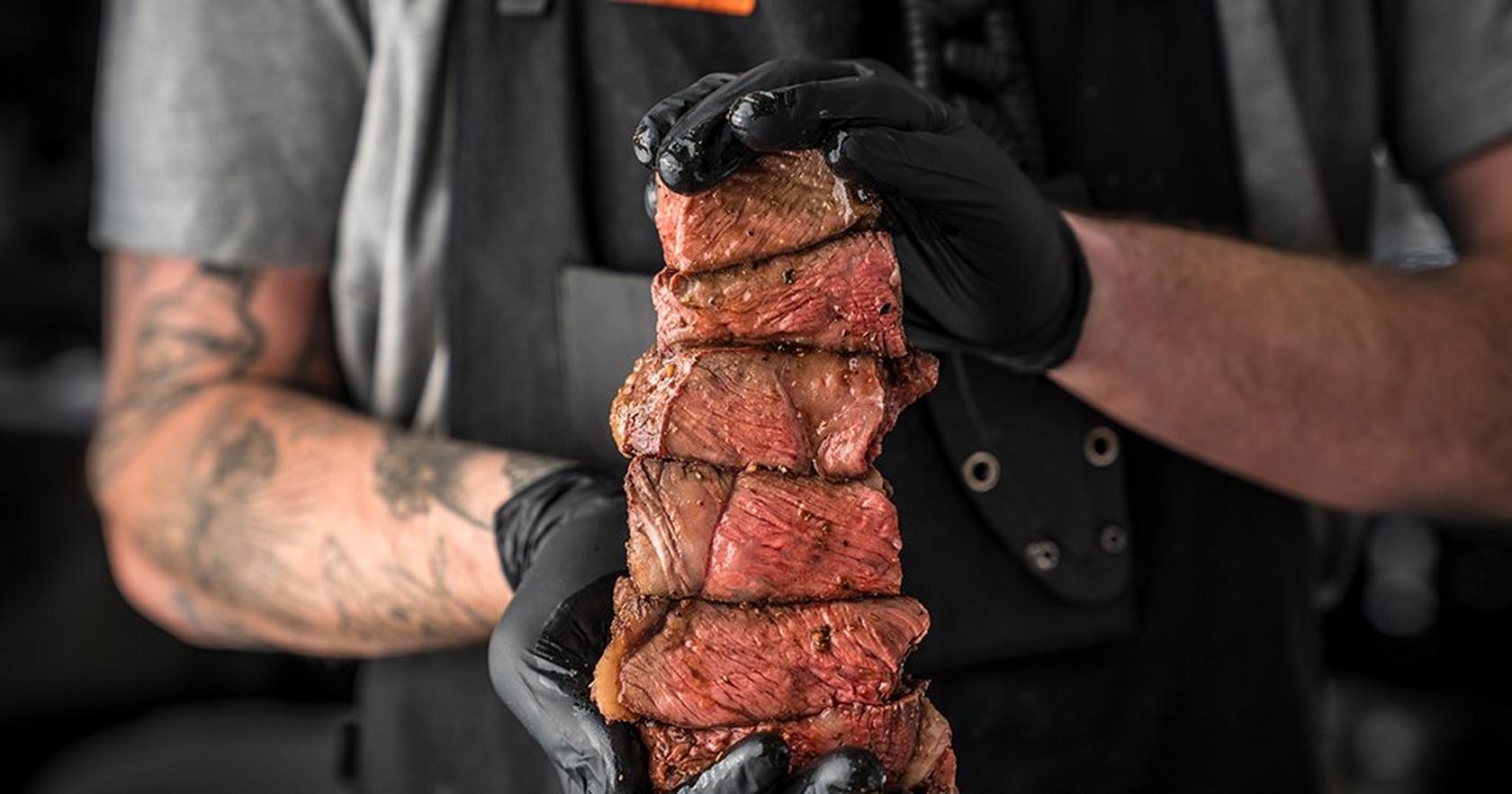
Steak is the unquestioned star of any barbecue. The crisp, brown exterior, along with the tender meat inside, is the perfect bite. Here's how to make it happen.
The Two Best Ways to Grill Steak
The ideal grilled steak has an appetizing browned exterior with tender, still-pink meat inside. The tricky part is making sure that you don't burn the surface of the meat before the inside gets warm enough to eat, or cooking the inside too much before getting those nice surface grill marks.
There are two ways to go about it.
-
Direct grilling: Cooking the steak over high heat, and flipping occasionally until the meat reaches the desired internal temperature (135 degrees Fahrenheit for medium-rare).
-
Reverse searing: Cooking the steak slowly at a low temperature with indirect heat to get the meat 10 to 15 degrees from the final desired internal temperature, then finishing by cooking over high heat to get browning and grill marks.
The Best Steaks for Grilling
There is no one "best" cut for grilled steak -- it's all about personal preference. Good cuts for grilling range from leaner, more tender cuts, to cuts that pack fat and flavor.
Filet mignon or tenderloin: The most tender cut of steak, it's ideal for those who prefer their meat rare. A smaller cut so it cooks fast.
Flank steak: A thin, inexpensive cut. Flank steak doesn't have as much fat or natural flavor as some of the other cuts, so it should be marinated before cooking to add flavor and tenderize the meat. Because it is thin, it cooks fast over high heat. Learn more in our Flank Steak Cooking Guide.
Hanger steak: A flat steak, similar to flank steak, but usually with more fat content throughout. Hanger can be marinated before cooking but will also be tasty with a simple salt and pepper seasoning. Cooks fast over direct heat and should not be overcooked.
New York strip: A leaner cut that is relatively thick and firm like ribeye, but with less fat. Does not need to be marinated. A good candidate for reverse searing.
Porterhouse: A massive cut that's actually two steaks in one. A filet mignon and a New York strip. The Porterhouse tends to contain more of the tenderloin than its cousin cut, the T-bone. Porterhouse is usually cut quite thick, so reverse-searing can help you avoid an overcooked exterior and raw middle. There's no need to marinate before cooking. Salt and pepper (or another rub) is all you need.
Ribeye: The classic grilling cut because of its high fat marbling. The fat within the meat renders as you cook, delivering juicy meat goodness in every bite. Thinner ribeyes (about 1-inch thick or less) should be grilled over direct heat. Thicker ribeyes are a good candidate for reverse searing. Marinating isn't necessary for a ribeye. Learn more in our Ribeye Steak Cooking Guide.
Sirloin: The most inexpensive of the thick cuts, sirloin doesn't have as much fat and isn't as tender as these other cuts. Sirloin is a good candidate for marinating.
Skirt steak: A long, thin steak like flank steak, or hanger steak. It should be marinated and cooked over direct heat.
T-bone steak: Like the Porterhouse, contains a filet mignon and a New York strip. The T-bone has more of the strip. It’s thick like a porterhouse, and tends to cook slower because of the bone, so a reverse sear may be the best method. You don't need to marinate a T-bone.
Tri tip: A well-marbled, boneless cut. Usually not very thick, it's good for direct grilling. The good marbling means plenty of flavor, and you can season it simply with salt and pepper rather than marinating.
See our Types of Steak: Grilling Guide for all this info at a glance.
How to Season Steak
Generally speaking, the more expensive a steak is, the less you need to season it.
Cuts like filet mignon, porterhouse, T-bone, and ribeye will be quite flavorful with a dusting of salt and pepper.
The less expensive cuts, like skirt steak, flank steak, and sirloin, are good candidates for rubs or for marinades.
Salt and pepper seasoning: If you can, salt the steak 24 hours before cooking, then put it in the fridge on a wire rack. Left overnight, the salt will absorb into the meat so you get more in every bite. The refrigeration will also dry out the surface of the meat which will allow for more effective searing.
Marinades: Steaks of strong, hearty cuts that stand up to bold, flavorful marinades. Acidic or citrusy marinades would turn lighter cuts like chicken to mush, but steak can handle them. For cuts like flank steak or sirloin, feel free to get inventive and experiment with flavors. Marinate at least 1 hour ahead of time and up to 48 hours.
How to Sear a Steak on the Grill
To sear steak, cook it at high heat -- at least 450 degrees Fahrenheit.
Searing occurs when proteins and sugars in your steak heat up, causing a series of chemical reactions collectively known as the Maillard reaction. The result of the Maillard reaction is that unmistakable, cooking meat smell, as well as the pleasing crisping and browning of the meat's surface.
But the Maillard reaction requires the surface of the steak to reach at least 300 degrees Fahrenheit. Of course, you don't want the rest of your steak to reach 300 degrees. It would be a tough, charred mess. You need the high temperatures to rapidly heat the surface without overcooking the interior.
How Hot Should the Grill Be for Steak?
The proper temperature for direct grilling is 450 degrees Fahrenheit.
For reverse searing, start at 225 degrees Fahrenheit, then increase to 450 degrees to finish the steak.
How Long to Grill Steak
Direct grilling a steak over high heat will take between 5 and 15 minutes depending on the type and thickness of the steak, as well as other factors such as whether the steak was marinated.
Indirect grilling can take approximately one hour -- around 45 minutes for the indirect heating, and an additional 5 to 10 for the direct grilling. Again, it depends on the type and thickness of the steak.
We strongly recommend using an internal thermometer to get to the perfect temperature for steak.
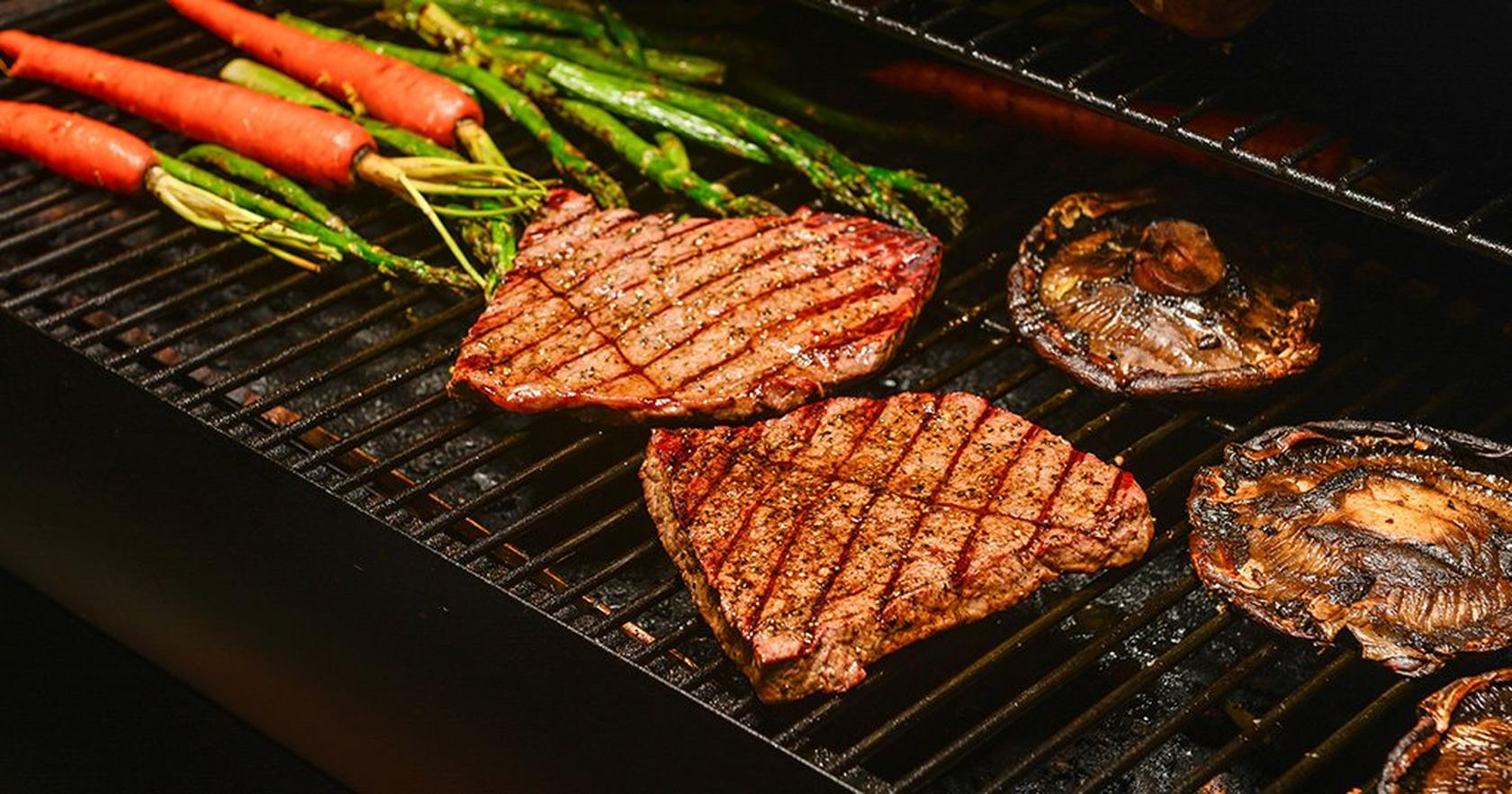
Other Steak Cooking Questions
We've covered the basics, but let's talk about a few other common questions we often hear.
Should You Boil Steak Before Grilling?
Never, never, never boil steak before grilling. Boiling the steak will give the exterior an unpleasant grey color, and it will probably be overcooked before it gets to the grill.
There is a technique called sous vide cooking where you immerse steak in warm water to cook it to a desired temperature, then finish cooking it on the grill. But the water temperature is kept closer to 130 degrees Fahrenheit, never as high as the boiling point of 212 degrees.
How Do You Grill a Frozen Steak?
Never grill a frozen steak. Frozen steak must be defrosted before cooking.
Grilling a steak while fully frozen is a health risk because bacteria can form while the steak lingers at low temperatures. Also, the surface of the steak is likely to burn while the inside is raw.
To defrost frozen steak, put it in a dish in the refrigerator. Most cuts will fully defrost overnight.
If you need to defrost frozen steak in a hurry, put it under cold running water.
Do You Close the Grill When Cooking Steak?
Yes, you close the grill when cooking steak. Closing the grill helps the temperature stay high, achieving the tasty sear you want on the surface of the steak.
But you should check the temperature of the steak frequently. If you have a Traeger that's no problem, because you can use the temperature probe to keep track.
The higher the cooking temperature, the more often you should peek and test. Different cuts cook at different rates, and you never know exactly how long it's going to take. Sometimes the steak's internal temperature will putter along around 100 degrees Fahrenheit and suddenly shoot past the 135-degree target.
What Do You Eat With Grilled Steak?
You can serve sauces to pour over the grilled steak, such as pan sauce, compound butters, chimichurri, or bottled barbecue.
As far as side dishes, it's nice to have two elements.
-
A starchy side that can soak up some of the tasty steak juices -- mashed potatoes, rice, soft bread, and polenta are all good candidates.
-
A salad with an acidic dressing to provide a contrast of color and flavor. Consider a green salad or corn salad. The bright colors will make the plate look a little more festive since steak and starches don't exactly pop. And an acidic dressing will play off the fattiness of the steak, cutting through and even improving the flavor. For leaner cuts that have less fat, choose a less acidic dressing.
Grilled Steak Recipes
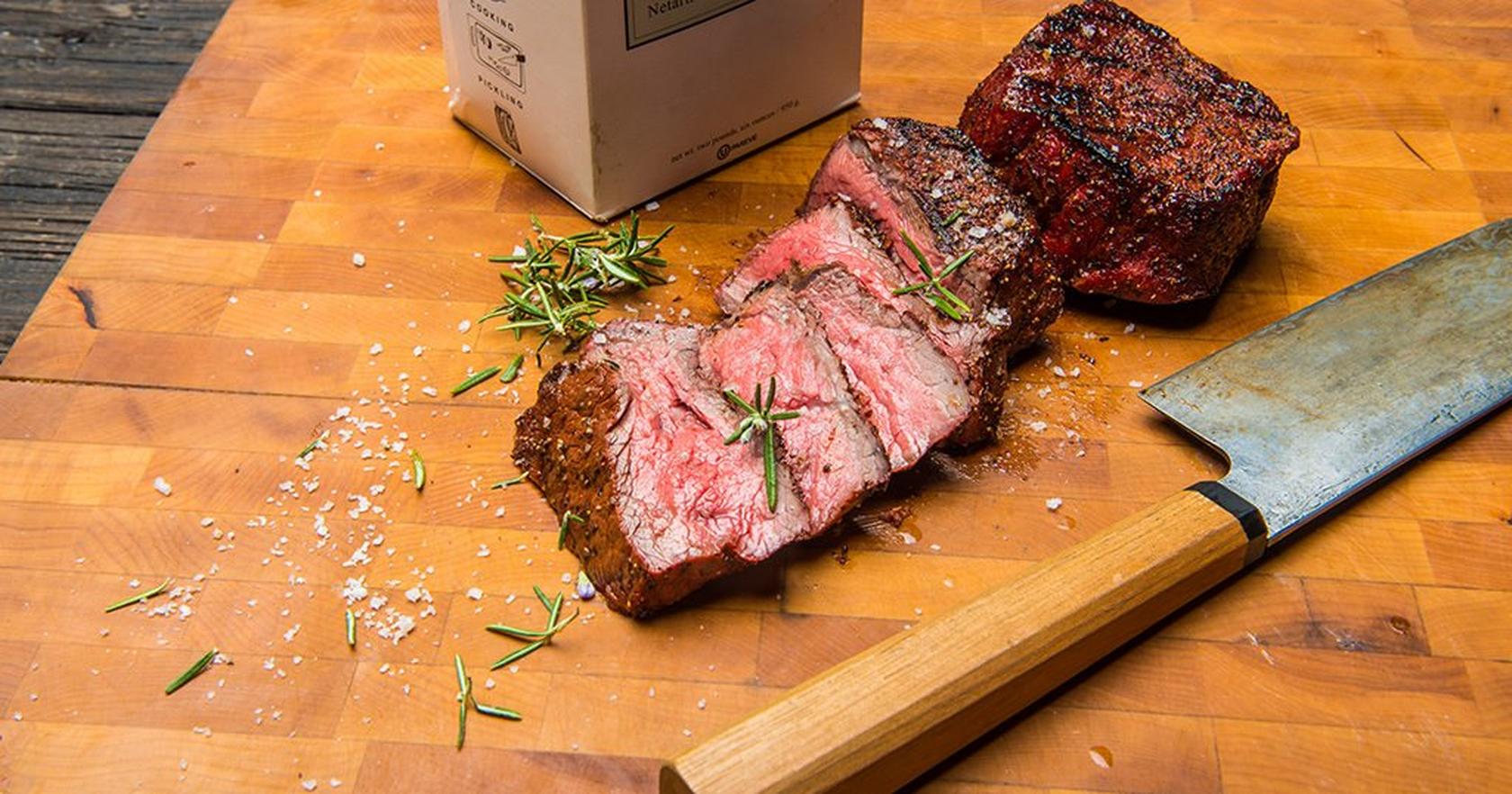
Cook time: 6 minutes
Serves: 2
Ingredients
2 sirloin steaks
1 tsp garlic powder
1 tsp onion powder
1 tsp paprika
1 tsp chile powder
1 tsp brown sugar
1 tbsp salt
1 tbsp ground black pepper
How to Grill Skirt Steak

Cook time: 15 minutes
Serves: 4
Ingredients
2 tbsp chili powder
2 tsp kosher salt
1 tsp ground cumin
1/2 tsp chipotle chile powder
1/2 tsp cayenne pepper
1 tsp lime zest
1 1/2 Pound skirt steak
How to Grill T-bone Steak
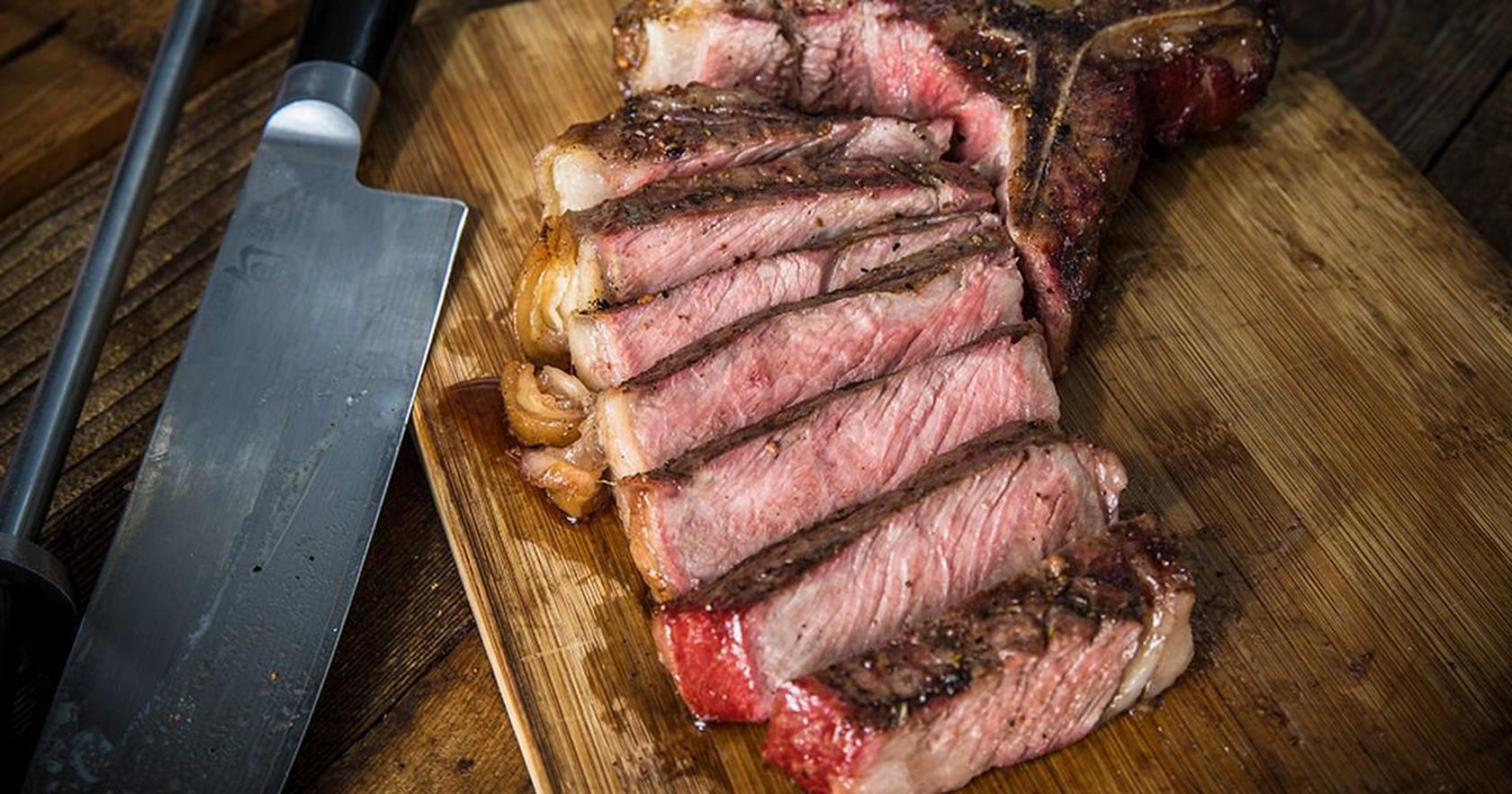
Cook time: 45 minutes
Serves: 4
Ingredients
4 (14-16 oz each) T-bone steaks
Traeger Prime Rib Rub or coarse salt and freshly ground black pepper
4 tbsp butter, room temperature
How to Grill Ribeye Steak
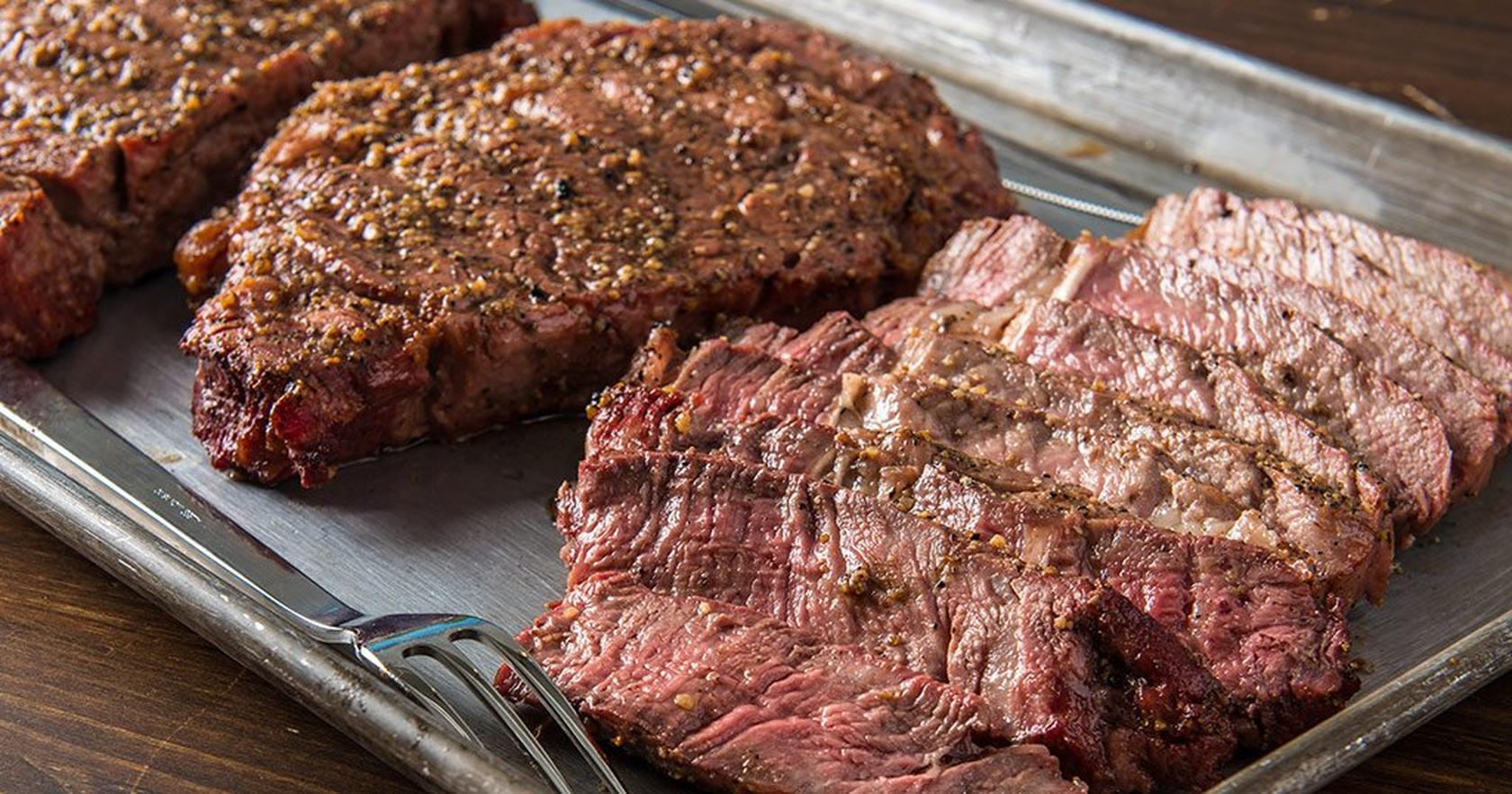
Cook time: 20 minutes
Serves: 2
Ingredients
2 (1-1/2 inch thick) bone-in rib-eye steaks
canola oil
Montreal Steak Seasoning
How to Grill New York Strip Steak
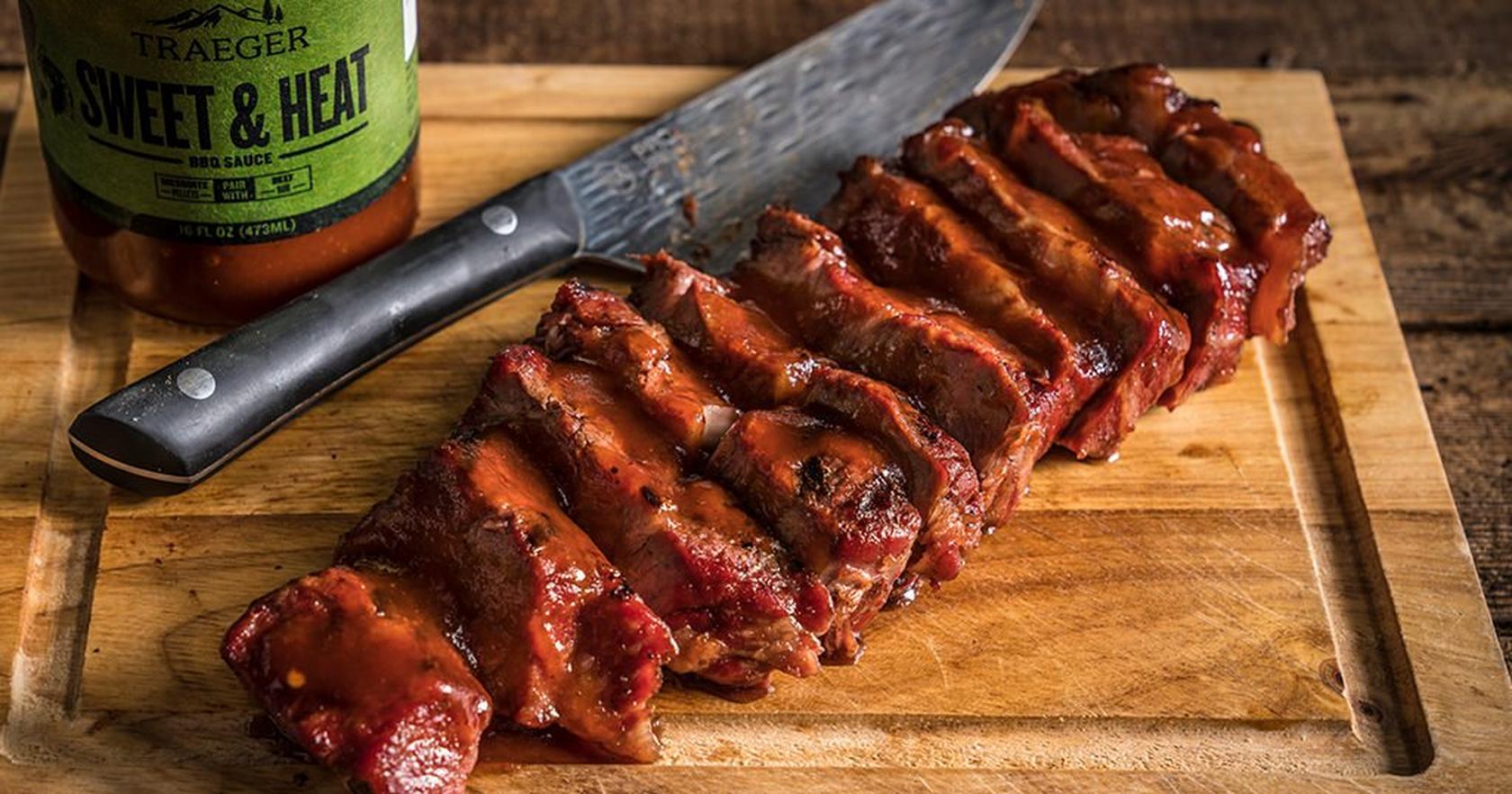
Cook time: 15 minutes
Serves: 2
Ingredients
1 cup Traeger Sweet & Heat BBQ Sauce
14 ounce New York strip steaks
Traeger Beef Rub
How to Grill Tri Tip Steak
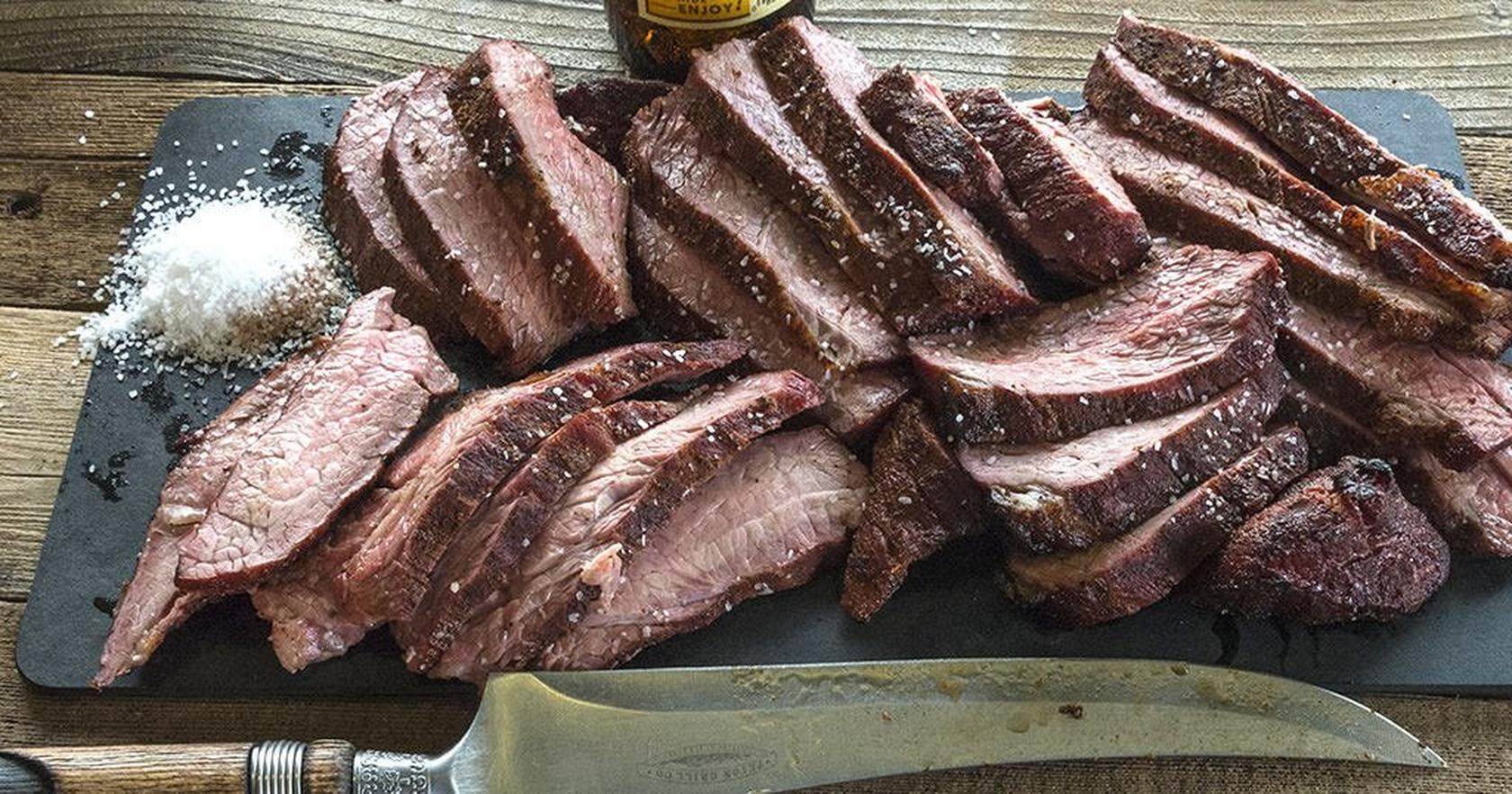
Cook time: 1 hour
Serves: 6
Ingredients
1 (3-5 lb) tri-tip
1/8 cup pepper
1/8 cup salt
How to Grill a Porterhouse Steak

Cook time: 40 minutes
Serves: 2
Ingredients
4 tbsp butter, melted
2 tbsp Worcestershire sauce
2 tsp Dijon mustard
Traeger Prime Rib Rub
2 (16-20 oz.) porterhouse steaks, at least 1-1/2 inch thick
How to Grill a Tomahawk Steak
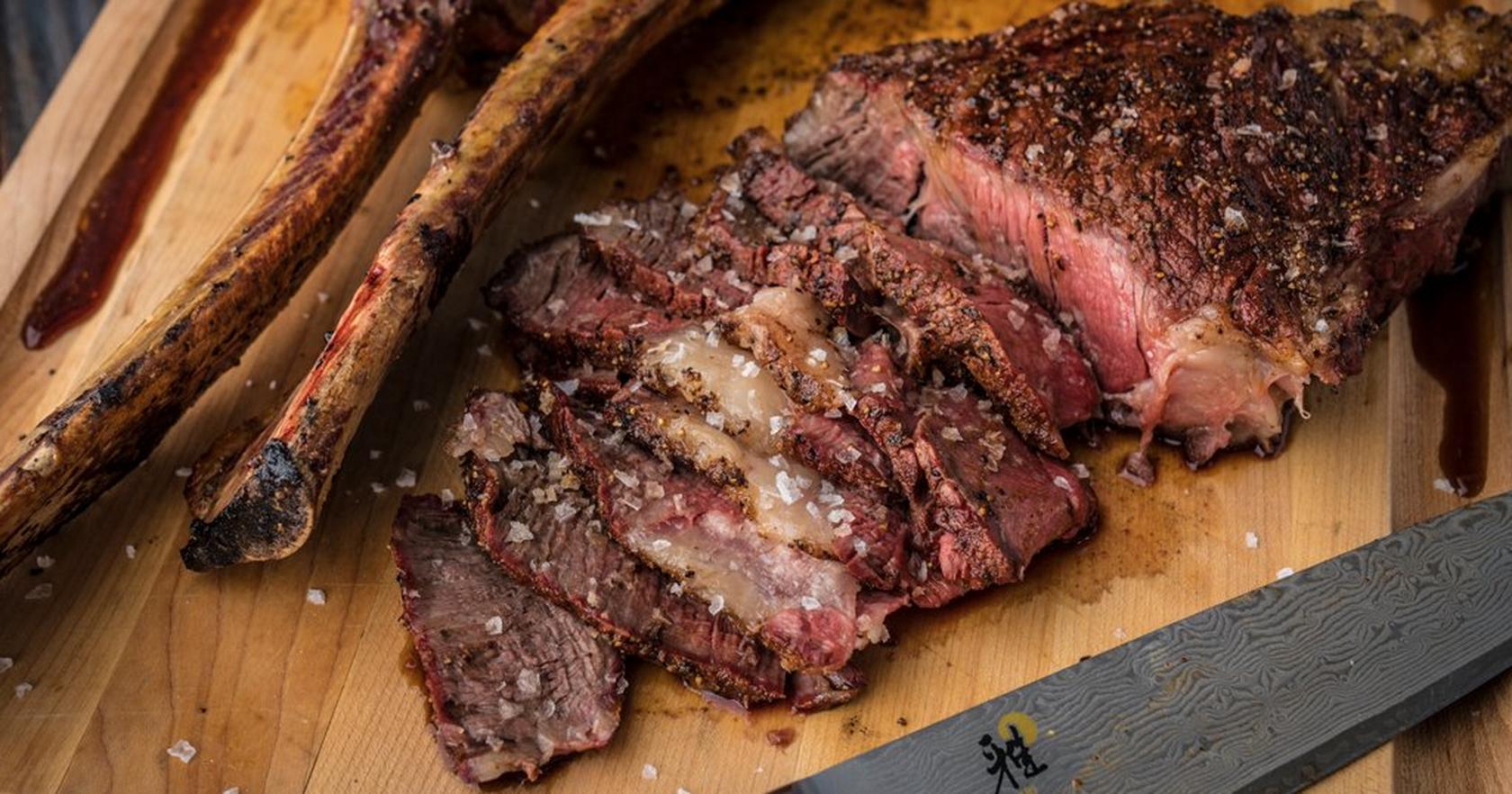
Cook time: 1 hour
Serves: 4
Ingredients
2 Large tomahawk steaks
2 tbsp kosher salt
2 tbsp ground black pepper
1 tbsp paprika
1/2 tbsp garlic powder
1/2 tbsp onion powder
1/2 tbsp brown sugar
1 tsp ground mustard
1/4 tsp cayenne pepper
Grilled Sirloin Steaks
by Traeger Kitchen
28 Reviews
Prep Time
5 Min
Cook Time
6 Min
Serves
2
Pellets
Apple
Raise the stakes and make your sirloin steak taste memorably delicious with our flavorful recipe.
Ingredients
main
| 2 | sirloin steak |
| 1 Teaspoon | garlic powder |
| 1 Teaspoon | onion powder |
| 1 Teaspoon | paprika |
| 1 Teaspoon | chile powder |
| 1 Teaspoon | brown sugar |
| 1 Tablespoon | fine sea salt |
| 1 Tablespoon | Ground black pepper |
1
When ready to cook, set the Traeger temperature to 500°F and preheat with the lid closed for 15 minutes.
2
Pat the steaks dry with paper towels.
3
In a small bowl, mix together the onion powder, garlic powder, paprika, chile powder, brown sugar, salt, and black pepper.
4
Rub the steaks on both sides with the spice mixture.
5
Insert the probe horizontally into the center of a steak, avoiding the bone. Place the steaks directly on the grill grates at the outer edges of the grill (typically the hottest part of the grill). Close the lid and cook until the internal temperature reaches 130°F for medium-rare, 3-4 minutes, or your desired temperature. Flip and cook for 1 minute more.
6
Remove the steaks from the grill and let rest for 5-10 minutes before serving. Enjoy!